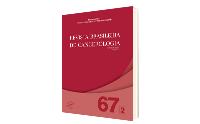Breast Cancer and Physical Activity: Perceptions during the COVID-19 Pandemic
DOI:
https://doi.org/10.32635/2176-9745.RBC.2021v67n2.1291Keywords:
Exercise, Breast Neoplasms, Coronavirus Infections, IsolationAbstract
Introduction: The social isolation scenario of the COVID-19 pandemic is challenging for the physical and mental health of women in breast cancer treatment. Objective: To investigate the perception of the impacts of the practice of remote physical activity on the clinical and physical symptoms of women with breast cancer during the COVID-19 pandemic imposed social isolation. Method: Qualitative and exploratory study with 32 participants with breast cancer of a South public university extension program in Brazil. The interview script applied from April to May 2020 consisted of 30 open and closed questions, fully transcribed and analyzed based in the Discourse Analysis method. Results: Three aspects stood out in the analysis (a priori categories), considering the effect of the time, respectively: a) physical and clinical aspects; b) physical and clinical aspects before and during social isolation (level of physical activity, pain and general disposition); c) aspects related to physical activity practice carried out remotely (overall perceptions about adaptation to remote activities and difficulties while performing in home environment). Conclusion: The imposed social isolation due to the imminent danger of spread appears to have contributed for the aggravation of breast cancer clinical and physical symptoms, such as the perceived increase of lymphedema and pain in the homolateral limb of the surgery, mostly, in addition to causing a significant reduction of physical activity regular practice.









